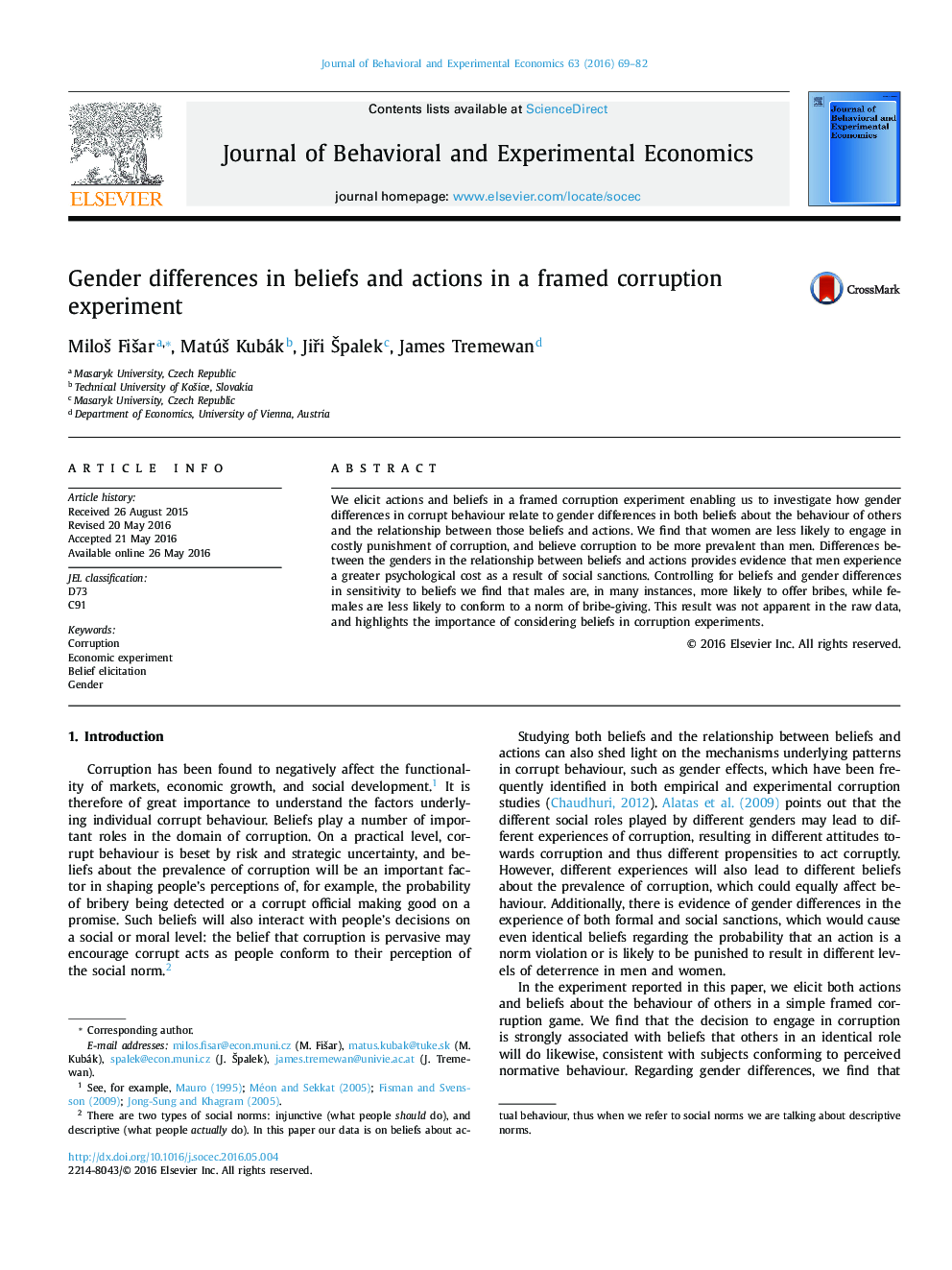| Article ID | Journal | Published Year | Pages | File Type |
|---|---|---|---|---|
| 881787 | Journal of Behavioral and Experimental Economics | 2016 | 14 Pages |
•Strong correlations between actions and beliefs suggest conformism re corruption.•Females are less likely to offer bribes and less likely to punish corruption.•Females believe corruption to be more prevalent than males.•Males have greater psychological costs of social sanctions.•Calibrating beliefs elicited using QSR for risk-aversion does not change results.
We elicit actions and beliefs in a framed corruption experiment enabling us to investigate how gender differences in corrupt behaviour relate to gender differences in both beliefs about the behaviour of others and the relationship between those beliefs and actions. We find that women are less likely to engage in costly punishment of corruption, and believe corruption to be more prevalent than men. Differences between the genders in the relationship between beliefs and actions provides evidence that men experience a greater psychological cost as a result of social sanctions. Controlling for beliefs and gender differences in sensitivity to beliefs we find that males are, in many instances, more likely to offer bribes, while females are less likely to conform to a norm of bribe-giving. This result was not apparent in the raw data, and highlights the importance of considering beliefs in corruption experiments.
